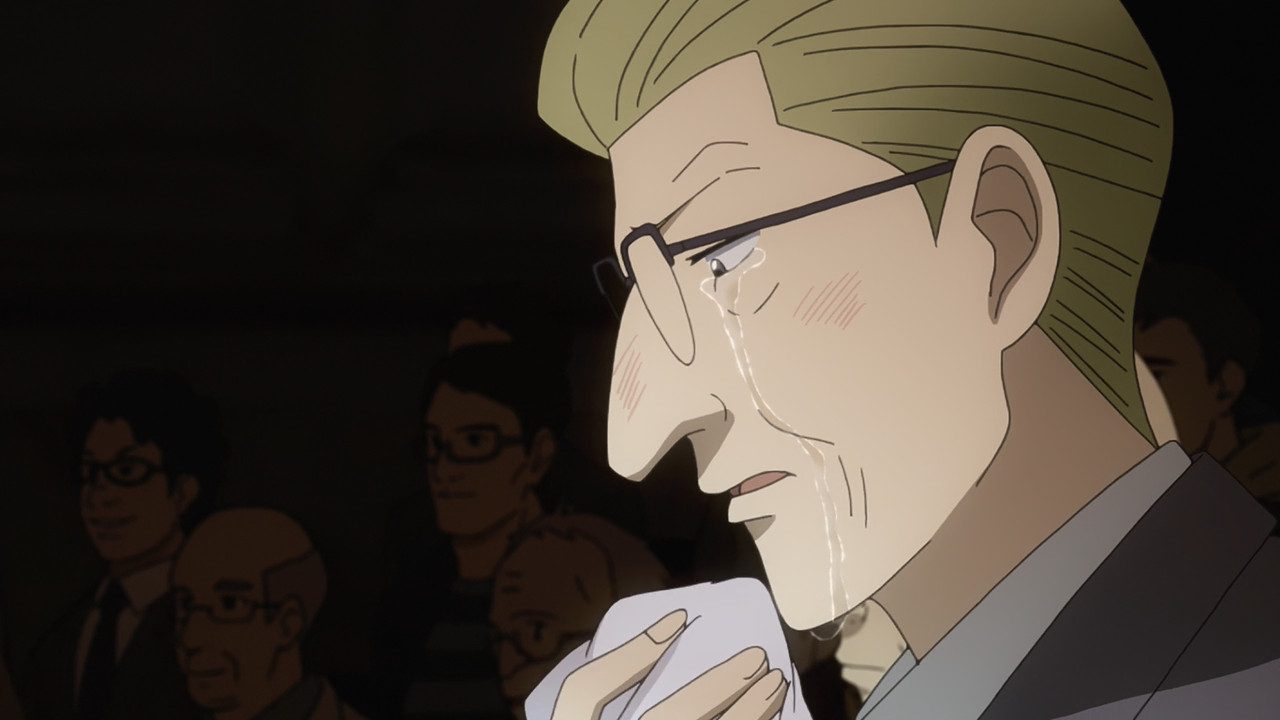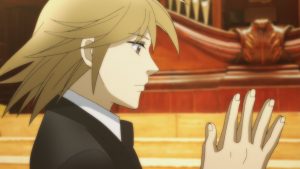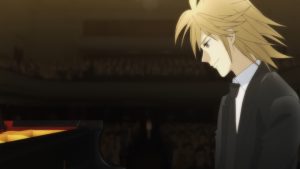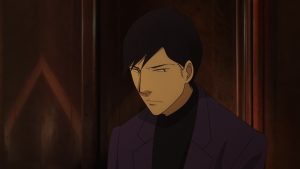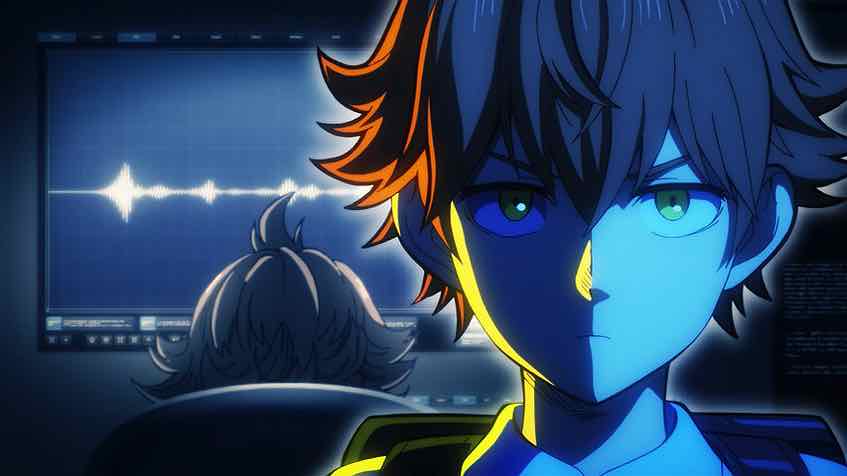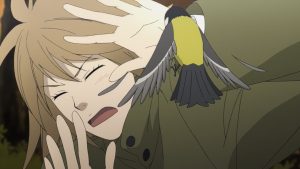 To start with, it’s pretty damn hard to go wrong with Chopin. It’s not like the guy is under the radar for anyone who pays even a little attention to classic music in their life, but hearing so much Chopin all at once with Piano no Mori is certainly a reminder. Japan, even anime, seems especially to adore Chopin – something in his phrasing and remarkable use of harmony strikes a cord with this music-loving nation. When one follows the classical music scene here for a while you realize that Chopin is revered as a sort of “Japanese at heart” gaikokujin – which is an extremely rare thing indeed.
To start with, it’s pretty damn hard to go wrong with Chopin. It’s not like the guy is under the radar for anyone who pays even a little attention to classic music in their life, but hearing so much Chopin all at once with Piano no Mori is certainly a reminder. Japan, even anime, seems especially to adore Chopin – something in his phrasing and remarkable use of harmony strikes a cord with this music-loving nation. When one follows the classical music scene here for a while you realize that Chopin is revered as a sort of “Japanese at heart” gaikokujin – which is an extremely rare thing indeed.
 I think we can see this mindset very much at play in this episode, which focuses solely on the performances of Lech Symanowski and Kai. Lech goes first and delivers a delicate, ethereal performance that the audience – and the judges – immediately praise as “authentic”. But when Kai delivers his take, he doesn’t even get to the end of his program before he’s interrupted with cheers and shouts of “Our Poland!”. What the audience seems to be saying is, “This Japanese boy gets us”, but what I think Piano no Mori is saying is that “Chopin may have been born Polish, but his soul was Japanese”.
I think we can see this mindset very much at play in this episode, which focuses solely on the performances of Lech Symanowski and Kai. Lech goes first and delivers a delicate, ethereal performance that the audience – and the judges – immediately praise as “authentic”. But when Kai delivers his take, he doesn’t even get to the end of his program before he’s interrupted with cheers and shouts of “Our Poland!”. What the audience seems to be saying is, “This Japanese boy gets us”, but what I think Piano no Mori is saying is that “Chopin may have been born Polish, but his soul was Japanese”.
 I won’t deny that’s a lot of projection on my part, but that’s what I came away feeling – and there’s certainly irony there, given Chopin’s identification (both by himself and others, posthumously) with Polish nationalism. There’s a certain ugliness in the way the episode presents the judges actually scheming for ways to screw Kai and hand the competition to Lech – not that such things never happen, but it comes off as a bit of sour grapes here. It’s also as if no one else (including Shuuhei of course) need have bothered even showing up.
I won’t deny that’s a lot of projection on my part, but that’s what I came away feeling – and there’s certainly irony there, given Chopin’s identification (both by himself and others, posthumously) with Polish nationalism. There’s a certain ugliness in the way the episode presents the judges actually scheming for ways to screw Kai and hand the competition to Lech – not that such things never happen, but it comes off as a bit of sour grapes here. It’s also as if no one else (including Shuuhei of course) need have bothered even showing up.
 That aside, one thing that makes Chopin as especially compelling subject both for a piano competition and a piano anime is that perhaps more so than any other great composer, his works lend themselves to improvisation. He wrote exclusively for the piano (with a couple of concertos in the catalog) which he played so brilliantly, always testing the limits of what the instrument was capable of. And many of his greatest works of art are as much canvas as painting, an invitation for a great interpreter to make them his own. If anything perhaps Lech’s performance was a bit too reverent, though it can’t be denied that’s a good approach for this audience (both in the seats and the judges chambers).
That aside, one thing that makes Chopin as especially compelling subject both for a piano competition and a piano anime is that perhaps more so than any other great composer, his works lend themselves to improvisation. He wrote exclusively for the piano (with a couple of concertos in the catalog) which he played so brilliantly, always testing the limits of what the instrument was capable of. And many of his greatest works of art are as much canvas as painting, an invitation for a great interpreter to make them his own. If anything perhaps Lech’s performance was a bit too reverent, though it can’t be denied that’s a good approach for this audience (both in the seats and the judges chambers).
 Lech gets a bit of backstory here – a domineering father-teacher resentful that his own father’s piano genius skipped a generation, an older sister who was in a mysterious accident and may or may not be dead – but this is Kai’s stage, make no mistake about it. And that’s part of the problem, really, because all in all this series is just too adoring when it comes to Kai. Frankly it’s a bit tiresome, and sucks some of the drama out of what should be dramatic moments. Yeah, we get it, he’s the best – God’s very hand on the keys – and we don’t need to be reminded of it each and every time he appears.
Lech gets a bit of backstory here – a domineering father-teacher resentful that his own father’s piano genius skipped a generation, an older sister who was in a mysterious accident and may or may not be dead – but this is Kai’s stage, make no mistake about it. And that’s part of the problem, really, because all in all this series is just too adoring when it comes to Kai. Frankly it’s a bit tiresome, and sucks some of the drama out of what should be dramatic moments. Yeah, we get it, he’s the best – God’s very hand on the keys – and we don’t need to be reminded of it each and every time he appears.
 None of that is to say that Kai’s performance isn’t lovely, as it certainly is. One of the judges describes it as “gallant”, and that odd choice of words seems a perfect fit. The apotheosis is his take on the Polonaise, Op. 53 (that’s what prompts the spontaneous audience interruption) – arguably Chopin’s most famous piece. It’s with this quintessentially Polish form that Piano no Mori asserts Chopin’s essential Japanese-ness, the perfect synergy with Kai. The Polonaise Op. 53 epitomizes Chopin’s nature as a star vehicle for pianists – it can be played in countless ways, and begs for a little grandstanding (which Kai happily provides). There’s no suspense here, apart from whether Shuuhei will even make the finals (his father has pretty much given up on him), but if in the end this series is really about the music, this was quite the platform.
None of that is to say that Kai’s performance isn’t lovely, as it certainly is. One of the judges describes it as “gallant”, and that odd choice of words seems a perfect fit. The apotheosis is his take on the Polonaise, Op. 53 (that’s what prompts the spontaneous audience interruption) – arguably Chopin’s most famous piece. It’s with this quintessentially Polish form that Piano no Mori asserts Chopin’s essential Japanese-ness, the perfect synergy with Kai. The Polonaise Op. 53 epitomizes Chopin’s nature as a star vehicle for pianists – it can be played in countless ways, and begs for a little grandstanding (which Kai happily provides). There’s no suspense here, apart from whether Shuuhei will even make the finals (his father has pretty much given up on him), but if in the end this series is really about the music, this was quite the platform.


